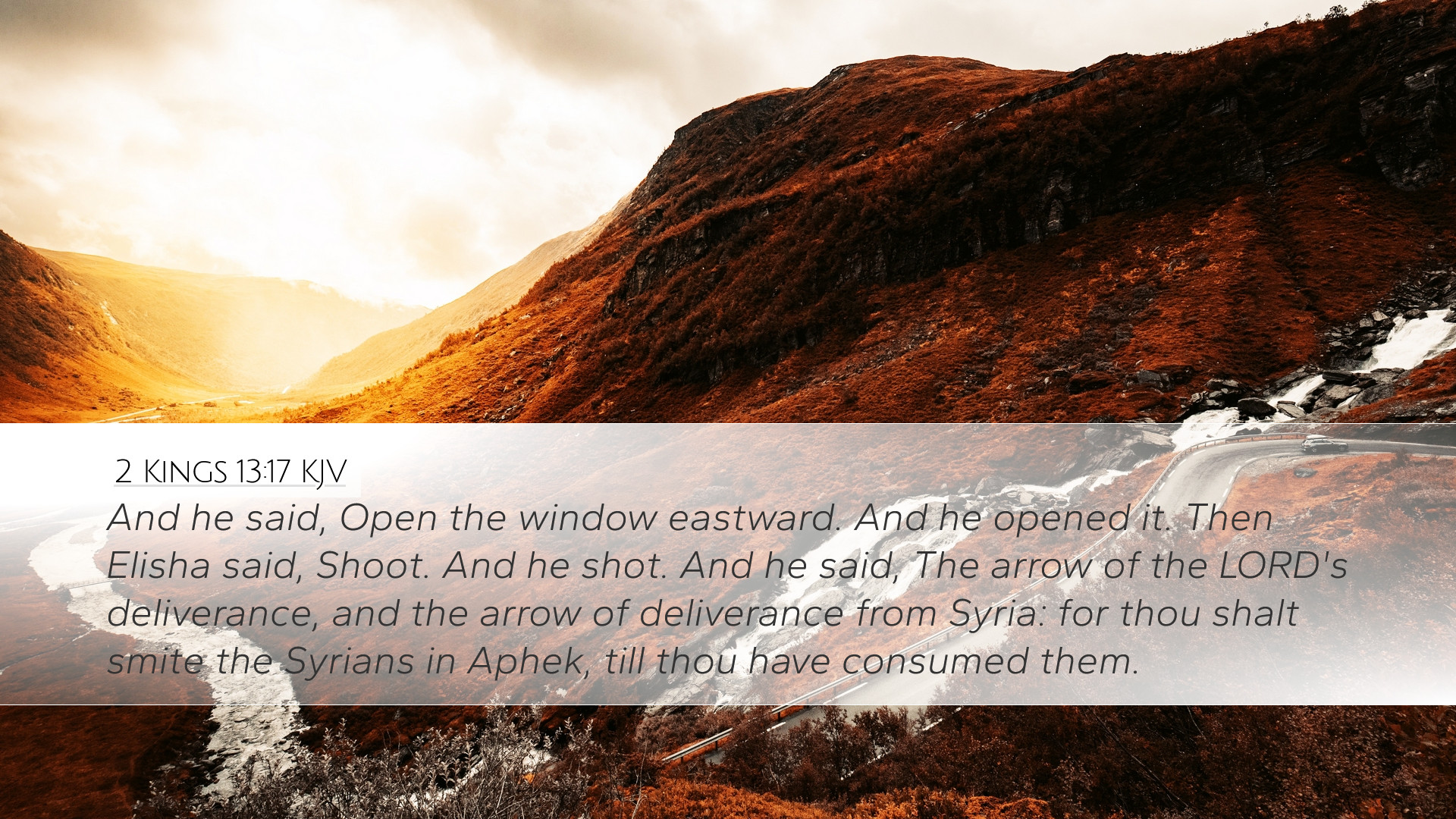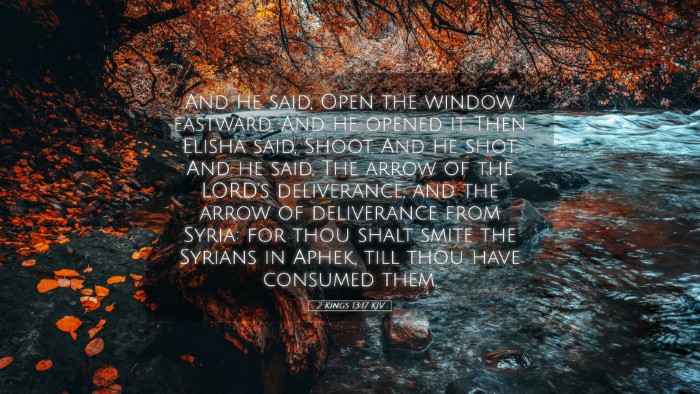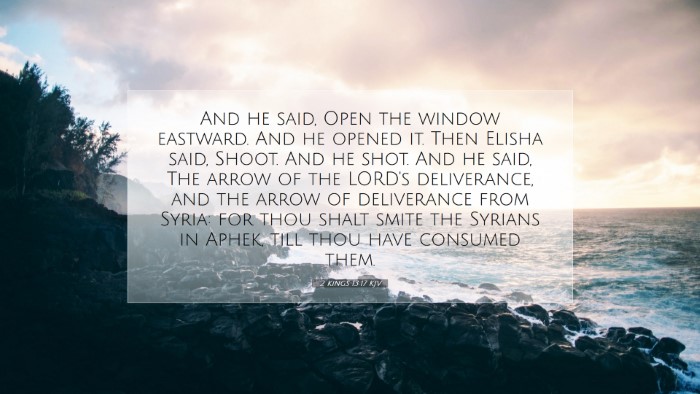Commentary on 2 Kings 13:17
Verse Context: 2 Kings 13:17 states,
"And he said, 'Open the window toward the east.' And he opened it. Then Elisha said, 'Shoot!' And he shot. And he said, 'The arrow of the LORD's salvation, and the arrow of salvation from the Syrians; for you shall strike the Syrians at Aphek till you have consumed them.'"
Introduction
This passage is rich with symbolic meaning and prophetic significance. It reflects the spiritual condition of Israel during the reign of Joash and illustrates the prophetic ministry of Elisha. Elisha’s actions demonstrate the power of God's word and the necessity for faith in the divine promise of deliverance.
Interpretative Insights
-
Historical Context:
This event occurs in a time of national struggle for Israel, as they faced ongoing threats from their enemies, particularly the Syrians. Elisha's prophetic role was crucial as Israel grappled with its identity and faith in God's deliverance.
-
Elisha's Role:
Elisha is portrayed as a faithful prophet of Yahweh. His instructions to Joash to open the window and shoot an arrow can be interpreted as a divine mandate. Elisha's actions represent obedience to God’s command and the need for physical participation in spiritual warfare.
-
Symbolism of the Arrow:
The arrow represents God's power to rescue and deliver. By referring to it as "the arrow of the LORD's salvation," Elisha indicates that the victory over the Syrians would be rooted in God’s might rather than military prowess. The direction of the arrow towards the east might symbolize the impending judgment on Israel's enemies.
Commentary Insights
Matthew Henry
Matthew Henry emphasizes the significance of the prophetic action in this narrative. He notes that the command to shoot the arrow indicates God’s assured victory over the oppressors of Israel. He expands on the idea that this act was a visible sign of the invisible support of the Lord. Henry underscores the importance of trusting in God's promises even when circumstances appear bleak.
Albert Barnes
Albert Barnes focuses on the theological implications of this event. He interprets the act of shooting the arrow as a direct manifestation of God's will. Barnes points out that the act served not only as a prophetic declaration of victory but also as a call to action for Joash and the nation. He stresses the dual necessity of faith and action in experiencing God’s promises in one’s life.
Adam Clarke
Adam Clarke offers insights into the specifics of the ritual performed by Elisha. He notes that the opening of the window was symbolic of both revelation and the accessibility of God’s voice in times of distress. Clarke emphasizes that the arrow signifies victory but also the need for continuous faithfulness to secure subsequent triumphs as the Israelites engaged further with the adversary.
Clarke also poignantly remarks on the importance of each believer's active participation in what God is doing through their lives. Just as Joash had to shoot the arrow, believers must take steps of faith in response to God’s word.
Application for Today
-
Faith in Action:
Joash’s act of shooting the arrow serves as a reminder of the necessity of both faith and action in the believer’s life. Just as Joash acted upon the prophet’s command, modern believers are called to respond to God’s guidance through faith-driven actions.
-
The Power of Prophecy:
This passage highlights the significance of prophetic voices in the lives of believers and the community. It encourages today’s theologians and pastors to seek and uphold the integrity of prophetic ministry in guiding congregations in times of uncertainty.
-
God's Sovereignty:
The certainty of God’s deliverance over our enemies, be they spiritual or physical, speaks to the heart of faith. As believers today face various trials, this passage reassures us of God's continued sovereignty and involvement in our lives.
Conclusion
In summary, 2 Kings 13:17 captivates its readers with a profound message about faith, divine intervention, and the prophetic process that represents God’s assurance of victory. As we reflect on this narrative, let us be reminded of the importance of living out our faith in action, trusting God’s promises, while eagerly participating in the divine mission laid before us.


